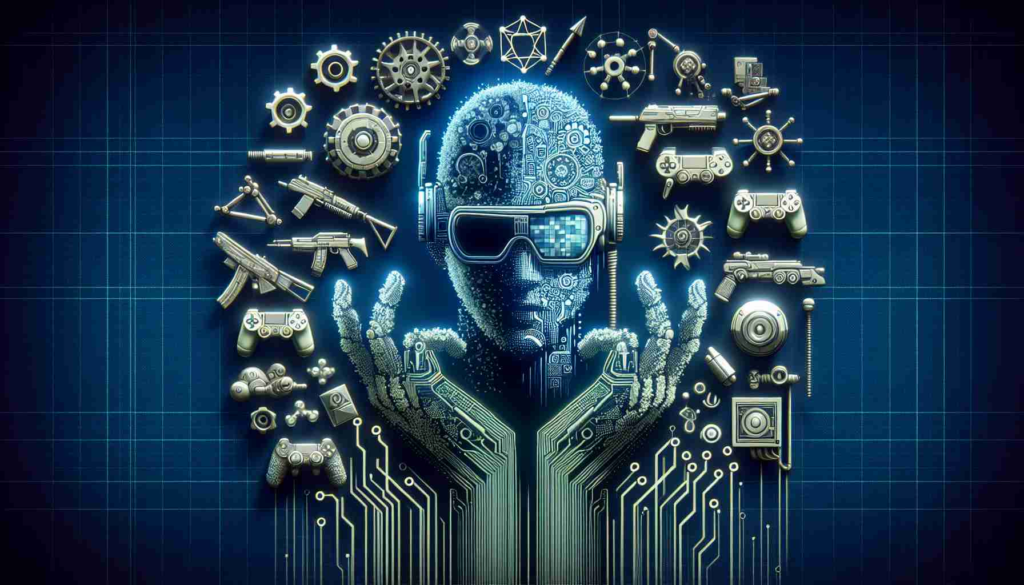
Summary: This insightful analysis examines the contrast between the complex design of the classic game Deus Ex and the latest developments in AI-driven NPC interaction demonstrated by Inworld AI, with detailed worldbuilding and video Reflects the balance between the pursuit of real conversation. game.
More than 20 years after its release, the video game Deus Ex remains an iconic example of groundbreaking design, where every element, even a simple piece of paper, sets off a chain reaction within its environment. There is a possibility. The game's ability to answer the question “Will this work?” A logical yet surprising result that still fascinates gamers and developers alike. This high level of detail in game design was highlighted recently when compared to new technologies aimed at enhancing NPC interactions in games.
The Game Developers Conference demo showcased a novel use of Nvidia tools to create NPCs capable of unscripted interactions, demonstrating the full power of Inworld AI. By using a robust large-scale language model and Speech-to-Text technology combined with professional voice actors, these NPCs can have conversations that respond to player input in ways never before possible. I can.
However, there were concerns about whether this technology could enable meaningful interactions. The limitations that users experienced when every free conversation with an NPC had to ultimately revert to a finite set of possibilities scripted by the game's developers. While the technology is impressive, there was some skepticism about its potential to truly revolutionize gameplay beyond gimmicky interactions.
Demo examples such as Covert Protocol demonstrate that while AI-driven conversations have an element of surprise, they may still fall short when compared to the multidimensional reactions experienced in games like Deus Ex. suggests. This raises a crucial question for the gaming industry: where should its focus be? Is it about creating NPCs that have natural conversation, or is it about building a world that reacts so complexly that it continues to amaze players decades later?
Contrast between classic game design and AI-driven NPCs
The video game industry has come a long way since the release of Deus Ex in 2000. At the time, the game set the benchmark for complex design, offering a complex, interactive world that seemed to follow the player's actions endlessly. If we look at today's technology landscape, we see companies like Inworld AI pushing the boundaries of what is possible with non-playable character (NPC) interactions.
As AI technology evolves, it's clear that there is a focus on developing NPCs that can engage players through dynamic, realistic conversations. His use of Nvidia tools by Inworld AI shows how AI can be used to create more lifelike NPCs that can generate unscripted dialogue. This not only improves the gaming experience for players, but also opens up new possibilities for video game narrative and mechanics.
Market forecast and industry growth
The global gaming market is expected to continue to experience significant growth due to advances in technology and increasing demand for interactive entertainment. According to market forecasts, the video game industry is expected to exceed $200 billion in revenue by the mid-2020s, and AI is playing an essential role in game development. AI-generated content and realistic NPC interactions are trends that have the potential to further fuel this growth and redefine the user experience.
However, there are issues and limitations to consider. While AI can create NPCs that mimic human conversations, these interactions remain tied to programming and can lack the depth and impact of carefully crafted game design. The challenge lies in blending storytelling and world-building with technical prowess to provide players with lasting engagement and enjoyment.
Current issues and future considerations
Game developers must decide where to invest their efforts. Should we prioritize technological advances in AI to simulate more human-like interactions, or should we focus on the detailed world-building epitomized by classic games like Deus Ex? There are concerns that his AI-driven NPCs still fail to promise truly meaningful conversations and risk turning complex storytelling elements into mere novelties.
As game developers address these challenges, the industry is likely to see a convergence of traditional game design principles and cutting-edge AI technologies to create complex, interactive, and immersive experiences. Investing in robust AI frameworks and collaborative efforts in narrative and environment design can lead to the next generation of groundbreaking games.
If you want to stay up-to-date with these developments and market changes in the gaming industry, we recommend following reliable sources in the field. Authoritative links for further research on this subject may include official websites of technology providers, gaming platforms, and market analysts. One such link is his link to Nvidia, a leading company in AI technology, which can be accessed by visiting Nvidia.

Marcin Frąckiewicz is a well-known author and blogger specializing in satellite communications and artificial intelligence. His insightful articles delve into the intricacies of these fields, providing readers with a deep understanding of complex technical concepts. His work is known for its clarity and thoroughness.


